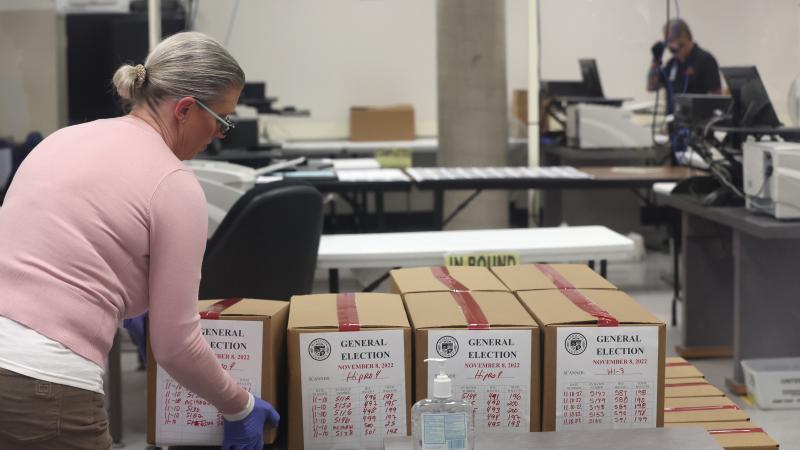National Science Foundation spends $500k to learn lizards could survive fire ant stings
Research funds were disbursed in installments from 2011 to 2013, and the results have just been reported.
The Golden Horseshoe is a weekly designation from Just The News intended to highlight egregious examples of wasteful taxpayer spending by the government. The award is named for the horseshoe-shaped toilet seats for military airplanes that cost the Pentagon a whopping $640 each back in the 1980s.
This week's Golden Horseshoe is awarded to the National Science Foundation (NSF) for a $500,548 grant to Penn State to research lizards, their ingestion of fire ants and the correlation with survival.
Announcing the grant's research results in a news release recently under the headline "Eating fire ants could prepare lizards for future ant attack," the NSF noted "the study comprehensively assessed how the immune system responds to lizards eating and being stung by these ants and might help researchers understand how other native species respond and adapt to the invasive insects."
Just The News found the research was funded by the National Science Foundation in three installments from 2011 through 2013 under the Obama administration.
The grant abstract announced the project would examine "the impact globally-invasive fire ants are having on native lizards."
When fire ants sting, "they inject venom that triggers an immune response in a wide variety of species," the researchers found.
Sadly, however, "In eastern fence lizards … repeated stinging can cause paralysis and even death," principal investigators Tracy Langkilde and Sonia Cavigelli learned.
"Fire ant consumption increased lizard immune responses relative to lizards stung by fire ants," the researchers found, from which they inferred that "consumption of fire ants can bolster immune responses needed to combat envenomation through stinging."
The results add to the "growing evidence that sub-lethal consumption of poisonous/venomous invasive species may reduce deleterious consequences of exposure to these toxins," the investigators concluded, "allowing native species to survive and coexist with otherwise deadly invaders."
Conversely, it may be presumed, supralethal consumption of "posionous/venomous invasive species" would not allow native species to "survive and coexist" with their toxic intruders.
The NSF linked to the study on its website, acknowledging the agency supported the research. They also tweeted out the new research results.
"At least for native fence lizards, the old adage that what does not kill you makes you stronger may hold some truth," said Sean Place, a program director in NSF's Division of Integrative Organismal Systems, on the agency's site. "This research provides valuable insights into the mechanisms that may underly the capacity for native species to counter negative effects of non-native introductions and underscores the significance of NSF's support of fundamental research on organismal responses to their biotic and abiotic environments."
The NSF did not respond to a request for comment on the grant's return on investment for U.S. taxpayers, or why it took nine years after the last research funds were obligated for the research to be published.















